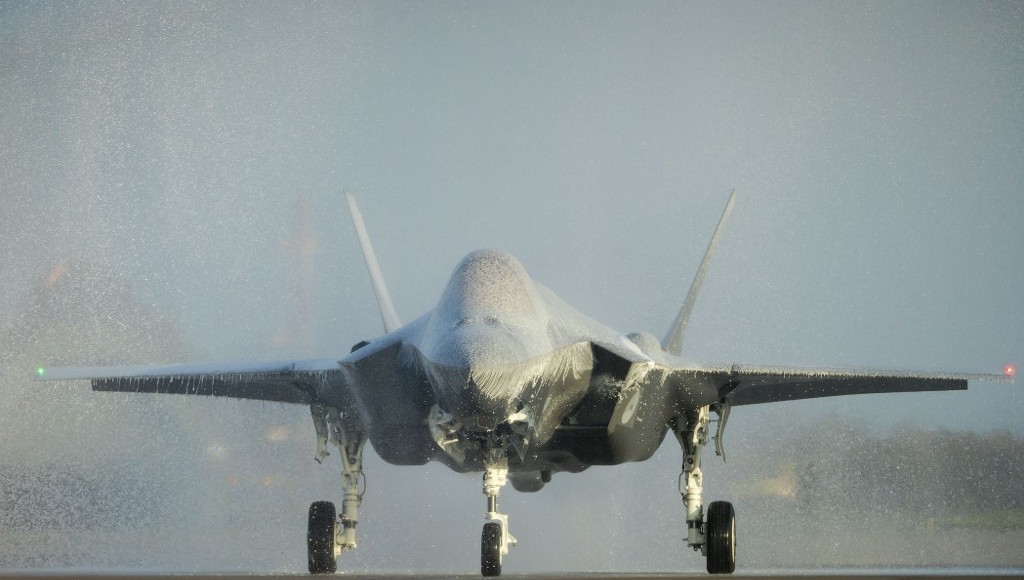Turkey is seeking to rejoin the F-35 program as the United States shows signs of a potential shift in policy, following Turkey’s progress with its homegrown Kaan, a fifth-generation fighter jet that made its maiden flight in February, Defense Minister Yaşar Güler said, the state-run Anadolu news agency reported.
Turkey was officially removed from the F-35 program in 2019 under the National Defense Authorization Act (NDAA) for fiscal year 2020, primarily due to its acquisition and deployment of the Russian S-400 air defense system. The US government argued that the S-400 posed a threat to the security of Turkey, the United States and other NATO allies by potentially compromising the F-35’s advanced capabilities.
The acquisition of the S-400 was classified as a “significant transaction” under the Countering Russian Influence in Europe and Eurasia Act of 2017, a measure designed to reduce reliance on Russian military systems. The US had offered Turkey the Patriot air defense system as an alternative, but Ankara opted for the S-400 instead.
After Turkey’s removal, the US transferred Turkish F-35 aircraft (tail numbers AT-1 through AT-6) to storage facilities in the United States, allocating up to $30 million for their preservation and maintenance.
Speaking at the Planning and Budget Committee in the Turkish Parliament on November 26, Güler attributed this shift in the US stance to Turkey’s success with Kaan.
Turkey’s first national combat aircraft, the Kaan, completed its maiden flight, marking a milestone in the country’s effort to modernize its air force under the TF-X project launched in 2016. Developed by Turkish Aerospace Industries (TAI) in collaboration with BAE Systems, the fifth-generation jet aims to replace Turkey’s aging F-16 fleet by the 2030s.
Powered by General Electric F110 engines, with plans for an indigenous engine by TRMotor, the Kaan features stealth capabilities, internal weapons bays and advanced systems. Its 13-minute test flight reached a speed of 230 knots and an altitude of 8,000 feet. Production is set to begin by 2028, with a target of two jets per month after 2029.
“When the Americans saw that we could develop and fly Kaan, their perspective shifted somewhat. They are now indicating a willingness to provide the F-35. However, there have not yet been any concrete developments on this matter,” he said. Güler also reiterated Turkey’s request to regain its production share in the F-35 program.
Turkey’s re-entry into the F-35 program is contingent on meeting specific NDAA requirements, including the complete removal of the S-400 system from Turkish territory and verifiable assurances that it will neither acquire nor accept delivery of any Russian-made air defense systems in the future.
Until these conditions are met, the US Department of Defense is barred from transferring F-35 aircraft, support equipment, parts, intellectual property or technical data to Turkey. Additionally, any return to the program requires joint certification from the US secretaries of Defense and State to congressional committees, confirming compliance with these conditions.
Defense Minister Güler also provided new details about the S-400 systems during his parliamentary address.
“The locations where we will deploy and use the S-400s have already been determined. All the necessary infrastructure, including underground facilities, has been completed and is ready. Once an order is given, the systems will be moved to the designated locations, and the entire system will be operational within approximately 12 hours,” Güler said.
“As you know, this is an air defense system. It means that we would only use the S-400s in the event of a very high-level threat, specifically an air attack.”
Under the current conditions, Turkey must either take concrete steps to meet the NDAA’s requirements or rely on new US legislation to waive these restrictions. However, to date, Ankara has not taken any tangible action regarding the S-400 issue.
